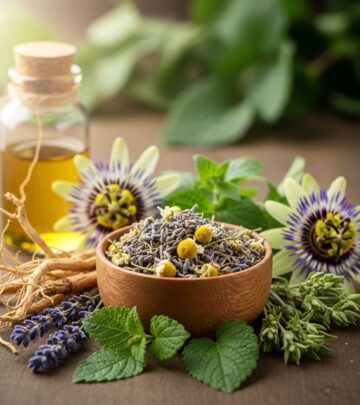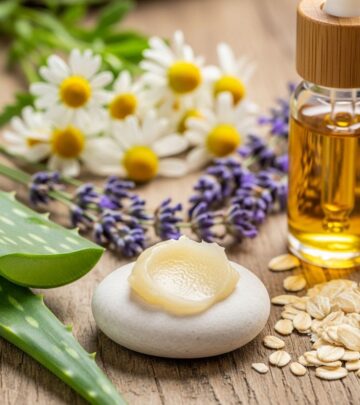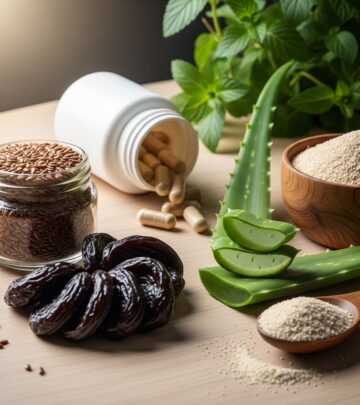6 Proven Natural Ways to Combat UTIs Fast
Discover six effective, natural remedies to help prevent and relieve urinary tract infections quickly and safely.

6 Quick Ways to Beat UTIs with Natural Remedies
Urinary tract infections (UTIs) are a common, uncomfortable health issue affecting millions of people every year, especially women. While antibiotics are often prescribed, concerns over antibiotic resistance and recurrence prompt many to seek safe, effective natural solutions. This comprehensive guide explores six practical, science-backed remedies you can try today to relieve UTI symptoms and lower your risk of future infections.
Understanding UTIs: Causes and Risk Factors
UTIs occur when bacteria—most commonly Escherichia coli—enter the urinary tract through the urethra and begin to multiply in the bladder. Several lifestyle and biological factors can increase your risk:
- Female anatomy: Women have a shorter urethra, making bacterial migration easier.
- Sexual activity: Increases chance of bacteria entering the urinary tract.
- Poor hygiene: Allows bacteria to linger near the urethra.
- Clothing choices: Tight or synthetic underwear creates a moist, warm environment ideal for bacterial growth.
- Reduced immunity: Age, diabetes, or hormonal changes can weaken your defenses.
1. Practice Impeccable Personal Hygiene
Simple changes in daily hygiene can dramatically reduce your likelihood of getting a UTI. Experts recommend:
- Wipe from front to back after using the toilet, preventing the transfer of bacteria from the anus to the urethra.
- Wash the genital area daily with plain water or mild, unscented soap; avoid harsh products that irritate skin.
- Urinate before and after sexual intercourse to help flush out bacteria introduced during activity.
- Avoid lingering in sweaty exercise clothes or wet swimsuits; bacteria thrive in moist environments.
Why it works: Reducing bacterial exposure lowers infection risk dramatically, especially for those prone to recurrent UTIs.
2. Choose Breathable, Loose-fitting Underwear
Your choice of underwear is more important than you might think. Synthetic fabrics and tight garments trap heat and moisture, fostering bacterial growth. Instead:
- Wear 100% cotton briefs for optimal breathability.
- Avoid thong and tight-fitting styles that rub and irritate delicate genital skin.
- Change your underwear daily, especially after sweating or swimming.
Studies show that individuals who make these small changes experience fewer UTIs due to reduced moisture and bacterial accumulation near the urethra.
3. Sip Unsweetened Cranberry Juice
Cranberries contain proanthocyanidins, active compounds shown to prevent bacterial adhesion to urinary tract walls. This makes it harder for infections to take hold. For maximum benefit:
- Choose unsweetened cranberry juice to avoid excess sugar intake.
- Drink 8–16 oz per day for several days at the first sign of symptoms.
- Consider concentrated cranberry extract supplements if juice is unavailable (check for standardized content).
Cranberry supplements have been supported by research for preventive benefits, though their effectiveness for active infections may vary. If you have kidney stones or diabetes, consult your doctor due to potential interactions.
4. Harness the Power of Herbal Remedies and Teas
Herbs have long been used in traditional medicine for urinary tract health. Modern research supports several as effective, natural antimicrobial agents:
- Uva ursi (bearberry leaf): Contains arbutin, a compound shown to inhibit E. coli growth, the main culprit in UTIs. Use with caution for short periods (not more than 1–2 weeks).
- D-mannose: A natural sugar that helps prevent bacteria from sticking to the urinary tract lining. Found in supplements or some fruits.
- Garlic: Fresh garlic or supplements act as natural antibiotics and may protect against a range of bacteria.
- Green tea: Contains catechins with antibacterial properties.
- Herbal teas: Parsley, chamomile, and mint teas provide mild diuretic and antibacterial effects, helping flush out pathogens.
How to use:
- Brew herbal teas daily using fresh or dried leaves.
- Take certified supplements as directed, preferably with advice from a healthcare provider.
- Avoid overusing strong herbal remedies (e.g., uva ursi) due to risks of liver or kidney toxicity over time.
Combining these herbs can offer synergistic effects. Always check for allergies or contraindications before starting any herbal regimen.
5. Hydrate: Drink Plenty of Water
Frequent urination acts as a flushing mechanism, helping expel bacteria from the urinary tract before they can multiply. For optimal hydration:
- Aim for at least 8–10 glasses of water daily unless otherwise advised by your doctor.
- Limit sugary or caffeinated beverages as they may irritate the bladder.
- Monitor urine color; pale yellow indicates proper hydration.
Maintaining adequate fluid intake has been linked with lower rates of UTI recurrence in multiple observational studies.
6. Prioritize Immune System Support
Your body’s own defenses are crucial in preventing and fighting off UTIs. Strengthening immunity with healthy lifestyle habits can reduce vulnerability:
- Eat a balanced diet rich in fruits, vegetables, and probiotics (e.g., yogurt, kefir).
- Get regular exercise to boost circulation and immune activity.
- Manage stress levels through mindfulness, meditation, or hobbies.
- Consider supplementing vitamin C and vitamin D after consulting your physician; deficiency may weaken your defenses.
Research supports that probiotics, especially certain Lactobacillus strains, can help restore healthy urinary and vaginal flora, further lowering UTI risk.
Table: Comparison of Natural UTI Remedies
| Remedy | Mechanism | Main Benefit | Evidence Level | Cautions |
|---|---|---|---|---|
| Hygiene | Prevents bacterial entry | Reduces risk of infection | High | None |
| Cotton underwear | Reduces moisture & bacterial growth | Prevents recurrence | Moderate | None |
| Cranberry juice | Prevents bacterial adhesion | Lowers recurrence risk | Moderate | Kidney stone, diabetes |
| Herbal teas | Antibacterial & diuretic | Flushes out bacteria | Low-Moderate | Allergies, toxicity |
| Water intake | Flushes urinary tract | Speeds recovery | High | None |
| Immunity support | Strengthens defenses | Reduces recurrence | Moderate | Depends on supplement |
Safety Precautions and When to Seek Medical Advice
While natural remedies offer promise, they cannot replace medical intervention for severe, complicated, or persistent UTIs. Seek immediate attention if you experience:
- Fever and chills
- Severe pelvic or back pain
- Bloody or foul-smelling urine
- Symptoms lasting more than 48 hours despite home treatment
Consult with your healthcare provider before starting any new supplement or herbal product, especially if you are pregnant, nursing, or taking other medications.
Frequently Asked Questions (FAQs)
Q: Can natural remedies cure all kinds of UTIs?
A: Natural remedies can help prevent mild UTIs and relieve early symptoms, but they are not a substitute for antibiotics in moderate to severe infections. Always consult your doctor for persistent or recurrent cases.
Q: Are herbal teas and supplements safe for everyone?
A: While most herbal teas are generally safe for short-term use, certain potent remedies (such as uva ursi) may cause toxicity if taken long-term or in excessive doses. Pregnant women and individuals with chronic kidney or liver disease should consult their physician before trying these options.
Q: How long should I use cranberry juice or supplements?
A: Cranberry products may be used daily for prevention or during acute symptoms (usually for a few days to a week). If symptoms persist or worsen, discontinue use and seek professional advice.
Q: What lifestyle changes can further lower my UTI risk?
A: In addition to practicing good hygiene and wearing breathable underwear, avoid irritants such as harsh soaps, feminine hygiene sprays, and excessive ingestion of caffeine or alcohol. Stay hydrated, urinate when the urge arises, and consider regular consumption of probiotics.
Conclusion
UTIs are not only uncomfortable but can also recur if underlying risk factors are not addressed. Incorporating the six natural strategies outlined above—ranging from hygiene to herbal supplementation—can offer meaningful relief and help protect your urinary health long-term. Always use these methods alongside medical guidance, especially for chronic or severe cases, to ensure your wellbeing and safety.
References
- https://www.theghanareport.com/6-quick-ways-to-beat-utis-with-natural-remedies-3/
- https://pubmed.ncbi.nlm.nih.gov/22432459/
- https://www.ghanaweb.com/GhanaHomePage/NewsArchive/Lifestyle-Why-your-urinary-tract-infection-is-still-a-problem-553152
- https://pmc.ncbi.nlm.nih.gov/articles/PMC7731396/
- https://www.healthline.com/nutrition/herbs-for-uti
- https://journals.sagepub.com/doi/10.1177/11786361221106109
- https://www.relainstitute.com/articles/14-natural-remedies-for-urinary-tract-infections/
Read full bio of medha deb












